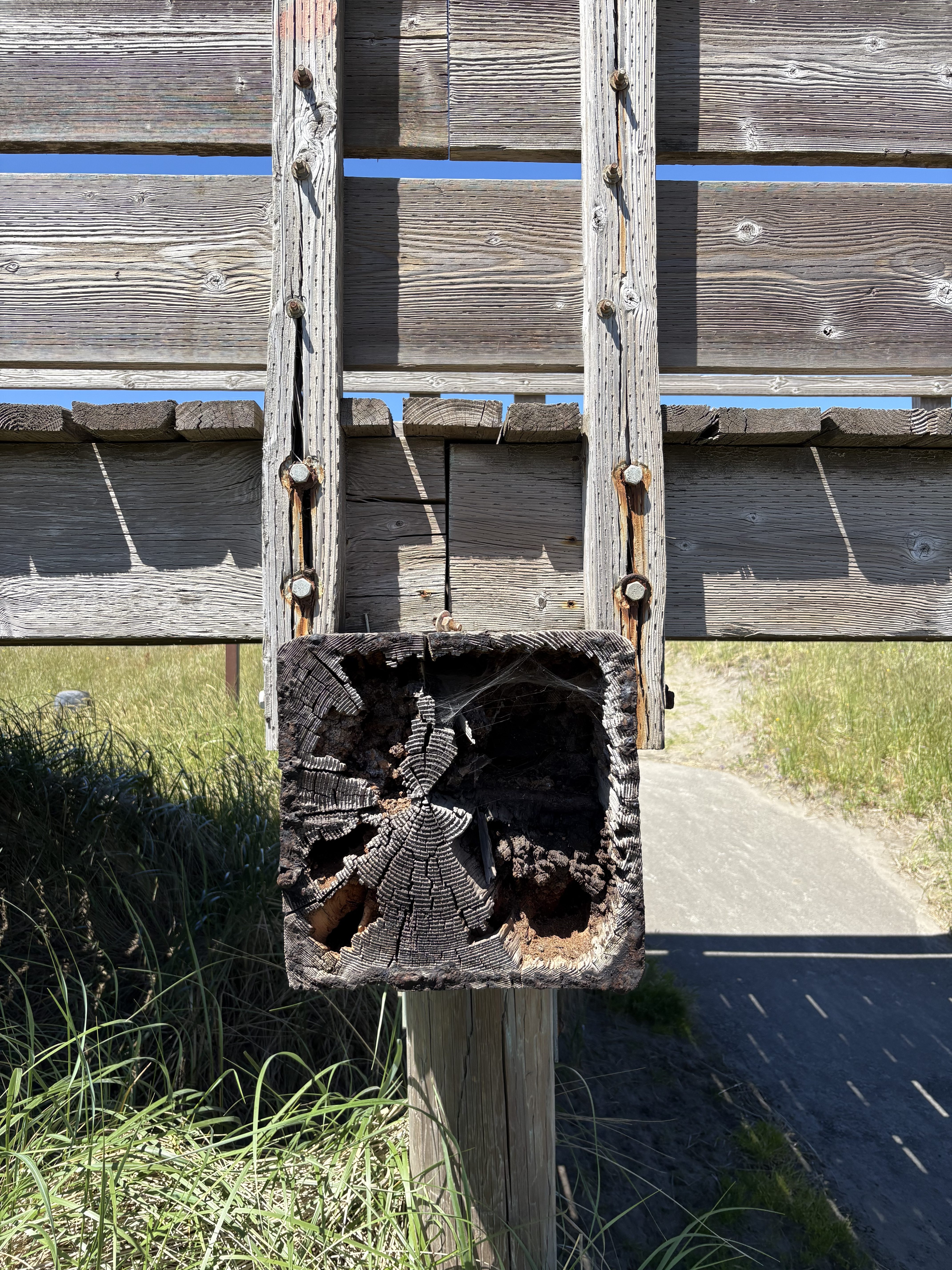Saints or Sinners? Characters of Pacific County: A good life overly seasoned with tragedy
Published 9:31 am Wednesday, September 18, 2024

- Elizabeth Lambert Wood and her children were photographed in about 1898.
Elizabeth Lambert Wood
Trending
1871 — 1962
Elizabeth was the eighth child of Clementine Miller and Joseph Lambert, both of pioneer Oregon Territory families. Her grandfather and father were nursery men — “fruitmen” Elizabeth called them — and her father originated the Lambert cherry, still a well-known commercial variety of sweet cherry. In 1892, the family moved to Portland where Elizabeth had been attending St. Helen’s Hall, an Episcopal school for girls.
In 1894 Elizabeth married oculist Dr. William Lee Wood and some say that it was the groom, himself, who presented her with the three-story “cottage” (complete with widow’s walk) located on the ocean ridge at the north end of Long Beach. Others say, however, that the house was a gift from her father. No matter by whom it was presented, Elizabeth spent much of her time there during her long life and it seemed to be a place of joy and solace for her.
Within a few years of their marriage, Dr. Wood contracted tuberculosis, and in 1901, seeking a drier climate to help in his recuperation, they moved from the Northwest, settling in Oracle, Arizona. Although they would move back to Portland within a few years when Dr. Wood recovered his health, they continued to return to Oracle for a part of each winter. The summers, however, were spent in Long Beach.
Their two children were Lambert Alexander, born in 1895 and Helen Henrietta, born in 1897. Both would die untimely deaths under tragic circumstances. Lambert was killed in action in July 1918 in France during the First World War. His death marked the beginning of a confused and calamitous period in Mrs. Wood’s life.
In 1923, after several years of declining health, Elizabeth’s beloved husband Dr. Wood died. About that time, Helen’s marriage ended in divorce and she moved back to Tioga with her young son. The following year, Mrs. Wood adopted Helen’s son, then four years old, to raise as her own, even renaming him Lambert after her own son. Less than a year later, while on a restorative vacation voyage, Helen was lost overboard in the Indian Ocean.
In the years that followed, Elizabeth spent increasing amounts of tine in Long Beach, devoting herself to her grandson and pursuing her two great interests — writing and teaching Sunday school. Lambert graduated from Ilwaco High School, went on to the University of Arizona and, after graduation at the onset of World War II, joined the Army Air Forces. Then in a cruel twist of fate, he was killed when his fighter plane crashed during a training mission in Texas — the second of Mrs. Wood’s Lamberts to be lost during a world war.
It may have been during that period of time that Mrs. Wood wrote this:
Possessions
Alone in the house my children loved,
I see its fireplace, with shelves above,
Its jar of shell, seaweed, smoke wood,
As things of value, since understood
To be their treasures covering years
They gathered and hoarded.
I see through tears.
Recognized since her youth for her articles and poetry which appeared in regional publications, Mrs. Wood soon became nationally known as a successful author of juvenile books about pioneer tines in the West and Northwest. Her typewriter still sits on the desk in the north dormer window of her third-floor writing studio at the Long Beach house.
Mrs. Wood is still remembered by older Peninsula residents as an icon of the community. The late Frank Glenn, Sr. said of her, “She did a lot for Long Beach. She gave many, many books from her personal collection of children’s books to the Long Beach School library. She also donated considerable acreage to the Lone Fir Cemetery and gave the land and the construction costs for the original Presbyterian church in Long Beach — the building that is just south of the Long Beach School. For years, also, she conducted very well-attended Bible study classes in her living room, and in later life, she donated that wonderful stained-glass window to the Episcopal church.”
From her obituary in the Feb. 15, 1962 Arizona Daily News: “…Mrs. Wood, a jolly, grandmotherly woman, was known to thousands of boys who used the Triangle-Y camp [which she donated to the Arizona YMCA]. Calling her ‘Mother Wood,’ they often trooped to her home on a hill inside the campground… for slices of fresh baked bread. Four years ago, when the power and electricity were off in Oracle some would-be rescuers drove to her house to check on her. They found her happy and rosy-cheeked from baking.”
“I don’t want anyone to rescue me,” she declared. “I’ve been having a whale of a time with my old wood stove. Reminds me of the old days.”









